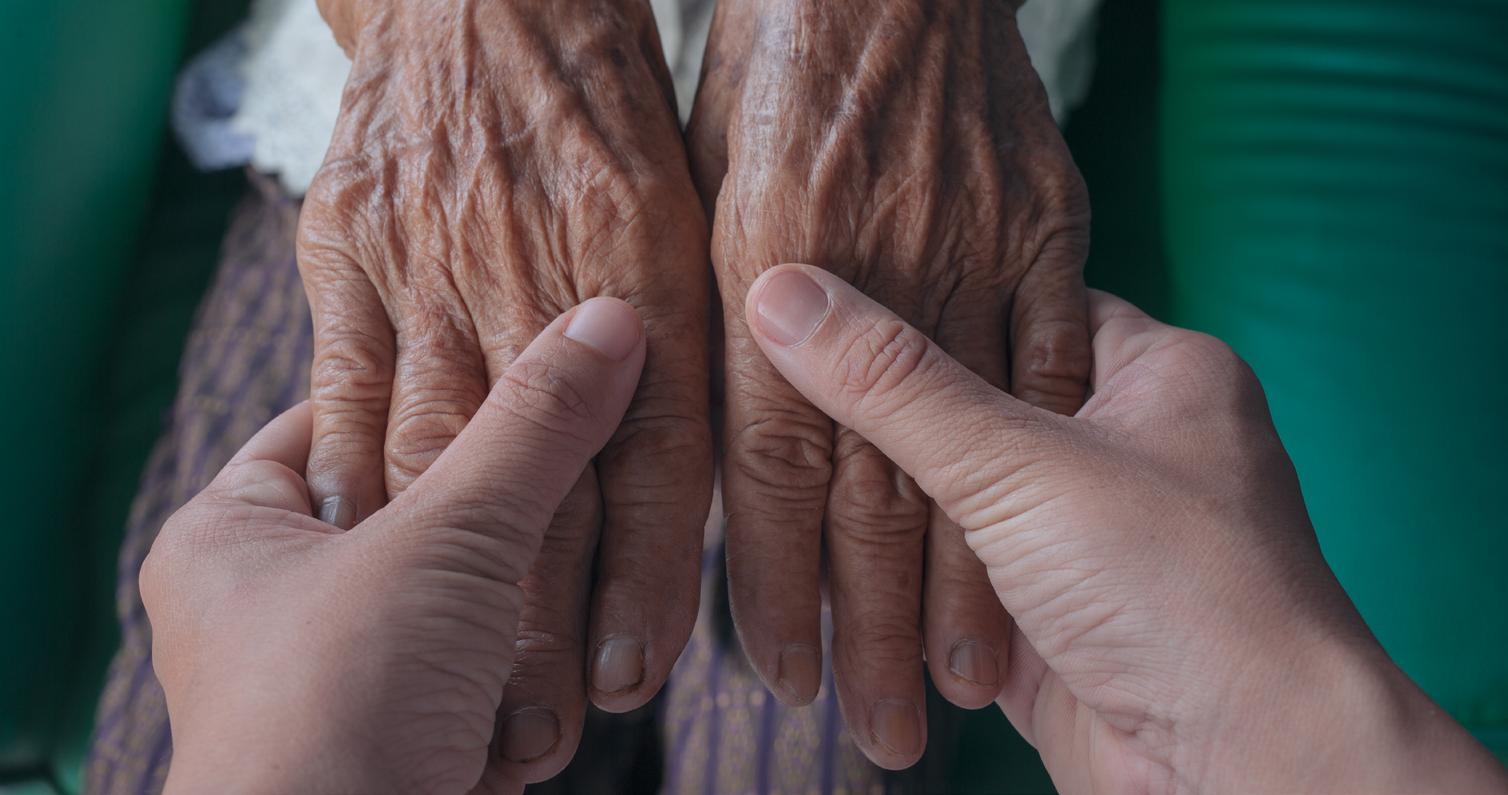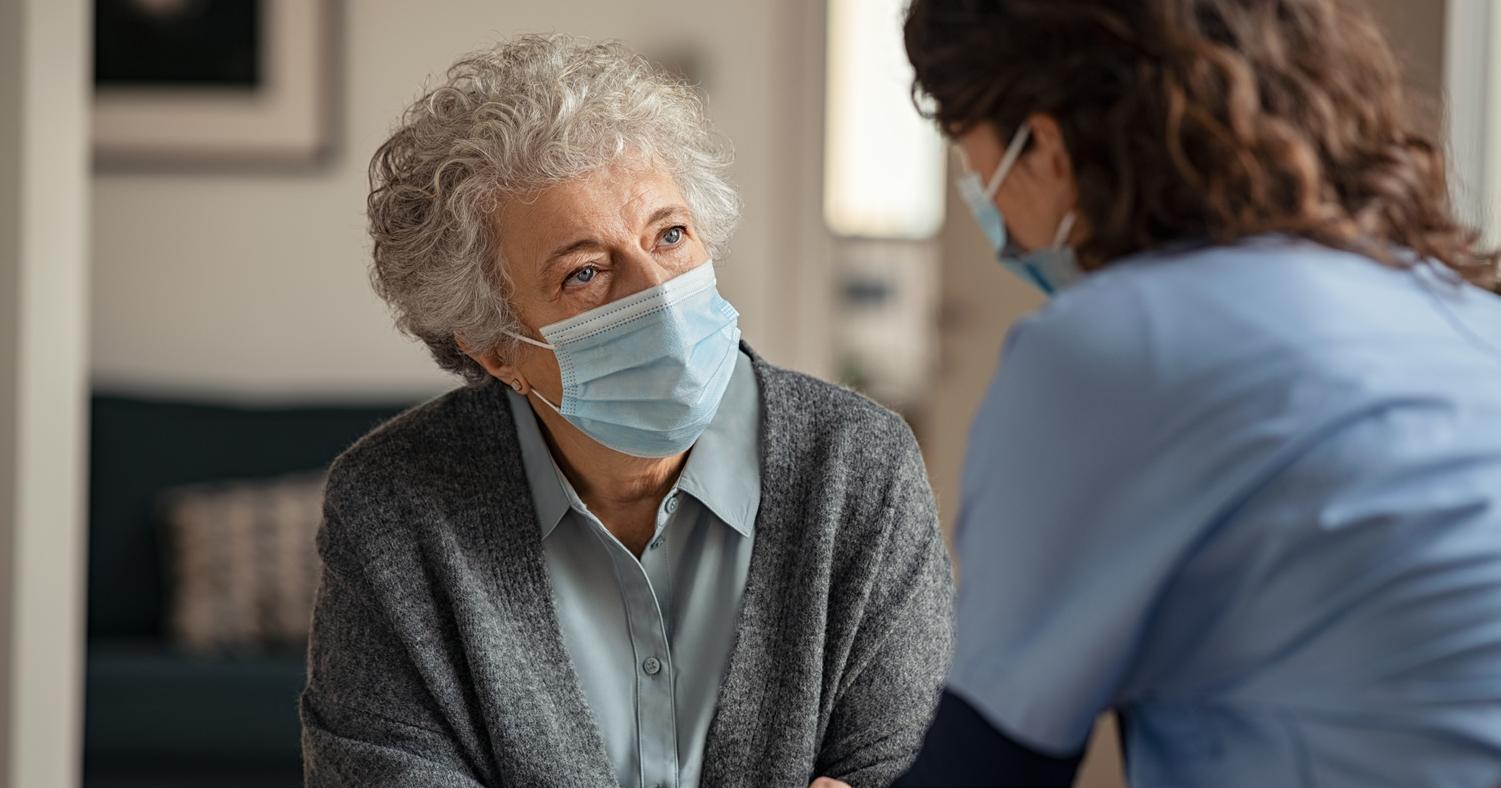ADULT PROTECTIVE SERVICES
Washington State 2022 Annual Report

 Mount St. Helens (foreground)
& Mount Adams (background)
Mount St. Helens (foreground)
& Mount Adams (background)
APS Mission, Vision & Purpose
ALTSA/APS Mission: To transform lives by promoting choice, independence and safety through innovative services.
APS Vision: Vulnerable adults live free of harm with appropriate protective services in place and accountability of perpetrators.
APS Purpose: To transform lives by educating the public, conducting quality investigations, providing advocacy and offering protective services to vulnerable adults.

TABLE OF CONTENTS 2 |APS Director’s Welcome 3 | 2022 Quick Data 4 | APS Investigation Process 5 | Regional Investigation Data 6 | Regional Comparison by Allegation Type 7 | Vulnerable Adult Definition 8 | APS Services 9 | Alleged Victim Demographic Data 11 | Alleged Perpetrator Demographic Data 13 | 2022 Accomplishments 14 | 2023 Goals
1 2022 Washington APS Annual Report Table of Contents
SPIRIT LAKE & ST. HELENS LAKE
WELCOME
Washington’s Adult Protective Services is dedicated to serving vulnerable adults. We investigate reports of abuse, neglect, abandonment, exploitation and individuals experiencing self-neglect in Washington State.

Collaborative partnerships are key to serving our most vulnerable.
Key community partners, stakeholders and tribal partners support APS in the work that we do in implementing protective services. We cannot do our work without these important partnerships.
- Kathy Morgan
2 2022 Washington APS Annual Report APS Director’s Welcome
MT. RAINIER







2021 vs. 2022 66,676 Total APS Reports 2021 65,833 Total APS Reports 2022 2022 Investigations 0.1% 28.5% 0.7% 17.4% 13.9% 6% 12.2% 18.5% 2.7% 3 2022 Washington APS Annual Report 2022 Quick Data Allegation Group Total Abandonment 43 Financial Exploitation 16,809 Improper Use of Restraint 387 Mental Abuse 10,227 Neglect 8,201 Personal Exploitation 3,560 Physical Abuse 7,179 Self-Neglect 10,882 Sexual Abuse 1,607 Total Allegations 58,895
APS Reports
What to Expect from APS
APS relies on the public to be our eyes and ears and make a report when there is reason to believe abuse, neglect or exploitation may be occurring so that we can look in to those concerns.
When you report a concern to Adult Protective Services (APS) using the internet, in person, or by calling or faxing, our intake team collect important details to start looking into the issue(s).

We evaluate each report to determine if it falls within our jurisdiction or purview. During the investigation we talk to people, gather documents, observe, and work with law enforcement and other organizations if needed.
We also collaborate with local organizations and community partners to assist with services and supports, such as a place to stay, food, medical help, support, and advice.
Support Across State Lines
A team from Adult Protective Services went above and beyond in supporting a client in a complex and unusual case. The client had been sent to another state by family members with limited money and no place to live. The other state contacted Washington as they were sending this individual back on the next flight. The investigation team did not hesitate to drop everything to coordinate the arrival, meeting the individual at the airport upon landing and transport from the airport.
They coordinated with the authorities for arrival and logistics upon landing. They coordinated and worked with other state agencies for an expedited assessment and eligibility determination. Then within just one day, they assisted the client in finding an Adult Family Home, as the home the client had lived in prior was no longer a viable option.
Thanks to the hard work and dedication by this APS team and thier collaboration and teamwork, a vulnerable adult was safe and had a successful outcome in rapid time.
4 2022 Washington APS Annual Report The APS Investigation Process
2022 Investigations - Regional Data
*The number of allegations may be greater than the number of investigations as some investigations contain multiple allegations.
**Self-Neglect allegations decreased due to screening criteria outlined in the APS Temporary Contingency Plan (12/14/2021 rev.).
A lleg ation Grou p Reg ion 1 Reg ion 2 Reg ion 3 A ban don m en t 1 0 1 4 1 9 Fin an cial Exploitation 4 ,5 4 0 5 ,6 8 6 6 ,5 8 3 Im proper Use of Restrain t 1 0 9 1 0 6 1 7 2 M en tal A bu se 2 ,9 2 5 3 ,0 5 7 4 ,2 4 5 N eg lect 2 ,2 9 6 2 ,5 2 2 3 ,3 8 3 Person al Exploitation 1 ,0 1 6 1 ,1 7 5 1 ,3 6 9 Ph y sical A bu se 1 ,9 8 1 2 ,3 4 2 2 ,8 5 6 Self- N eg lect 2 ,5 7 1 4 ,2 1 3 4 ,0 9 8 Sexu al A bu se 4 9 2 5 3 6 5 7 9 Total A lleg ation s per Reg ion 1 5 ,9 4 0 1 9 ,6 5 1 2 3 ,3 0 4
5 2022 Washington APS Annual Report Regional Investigations Data
Regional Comparison - Allegation Type
Region 1 Region 2 Region 3 10 4,540 109 2,925 2,296 1,016 1,981 2,571 492 14 5,686 106 3,057 2,522 1,175 2,342 4,213 536 19 6,583 172 4,245 3,383 1,369 2,856 4,098 579 0 1,000 2,000 3,000 4,000 5,000 6,000 7,000 Abandonment Financial Exploitation Improper Use of Restraint Mental Abuse Neglect Personal Exploitation Physical Abuse Self-Neglect Sexual Abuse N u m b e r o f A l l e g a t i o n s 6 2022 Washington APS Annual Report Regional Comparison by Allegation Type
Protecting Vulnerable Adults

The state of Washington defines a vulnerable adult by law as a person who is:
• 60 years of age or older who has the functional, mental, or physical inability to care for himself or herself; or
• Subject to a guardianship or conservatorship under 11.130 RCW; or
• Who has a developmental disability as defined under RCW 71A.10.020; or
• Admitted to any facility; or
• Receiving services from home health, hospice, or home care agencies licensed or required to be licensed under chapter 70.127 RCW; or
• Receiving services from an individual provider; or
• Who self-directs his or her own care and receives services from a personal aide under chapter 74.39 RCW.
Protecting Washington’s Most Vulnerable
APS recently assisted an individual who was experiencing self-neglect, lived alone, and was difficult to contact. When the investigator arrived at the home they knocked on the door and heard sounds from inside that were concerning.
The investigator immediately contacted 911, and fire department medics responded and were able to gain access to the home. The individual was found on the kitchen floor of the home, indicating a fall had occurred overnight. The individual was immediately transported to a local hospital where it was determined they had an acute medical condition and were immediately transferred to another facility for treatment.
The investigator’s effort speaks to the importance of what APS does and how it can change, transform, and save lives. The individual’s family was extremely thankful to APS.
7 2022 Washington APS Annual Report Vulnerable Adult Definition
Compassion in Action
APS received a self-neglect report from a concerned neighbor involving an individual who recently returned home against medical advice following a hospital and nursing facility stay. The client’s housing was far from ideal as there were no laundry facilities. They also could not shower, change their clothes, or take out the garbage. The water was also left on in the kitchen sink resulting in flooding damage to not only the home, but multiple units below.
Our investigator was compassionate in their conversation, and the client was able to realize that returning home from the nursing home was not a safe plan. Our investigator assisted with the completion of the long-term care application and assisted emergency personnel in accessing the client’s secure building. Before the client was transported to the hospital, our investigator helped ease their mind by ensuring all the lights were turned off and the door was locked.
Our investigator confirmed our Home and Community Services partner was working with the client to assist in finding a setting of their choice that could meet their needs.
Protective Services Offered
• Information and education
• Area Agency on Aging referral

• Communication services
• Change in residence
• Domestic violence services coordination
• Mental health services referral
• Physician referral
• Legal assistance referral
• Meals on Wheels
• Home and Community Services Referral
• Assistance establishing a payee
• Veteran services referral
• Transportation services referral
• And more!
In 2022, APS offered 78,010 services. We continue to expand community partnerships to offer additional services.
10 2022 Washington APS Annual Report APS Services
Count of Allegations by Alleged Victim Gender Alleged Victim Demographic Data
83% Not in Residential Facility (public spaces, private residences)
Location of Allegations
17% Residential Facility
23 9,532 231 6,553 4,783 1,973 4,215 5,626 1,163 17 6,334 132 3,118 3,037 1,386 2,495 4,775 322 0 5 0 16 3 2 14 3 8 Abandonment Financial Exploitation Improper Use of Restraint Mental Abuse Neglect Personal Exploitation Physical Abuse Self-Neglect Sexual Abuse N u m b e r o f A l l e g a t i o n s
of Allegation
Type
Male
Female
Transgender 9 2022 Washington APS Annual Report Alleged Victim Demographic Data
Alleged Victim Age
Did you know that most reports to APS are for individuals over the age of 60, with just over 17% of reports being individuals under the age of 60.
Alleged Victim Gender
Primary Languages for Alleged Victims
1. English
2. Spanish
3. ASL
4. Korean
5. Vietnamese
5,470 7,205 9,404 6,715 1,911 78 760 18-59 60-69 70-79 80-89 90-99 100+ N u m b e r o f A l l e g e d V i c t i m s ( u n d u p l i c a t e d c o u n t )
Age Range
17.3% 22.8% 29.8% 21.3% 6.1% 2.4% 0.2% Unknown at intake
Female 55% Male 38% Not Specified 8% Transgender <0.01%
10 2022 Washington APS Annual Report Alleged Victim Demographic Data (cont.)
Alleged Perpetrator Demographic Data
According to the National Adult Protective Services Association (NAPSA), alleged perpetrators for financial exploitation tend to be opportunists that prey upon a vulnerable adult. Financial exploitation is the most commonly reported type of vulnerable adult mistreatment and alleged perpetrators are often someone the individual feels they can trust (family member, caregiver, friend, etc.)
0.5% 7.4% 10.2% 8.4% 2.9% 70.7% <18 18-40 41-60 61-80 81+ Unknown at Intake T o t a l N u m b e r o f A l l e g e d P e r p e t r a t o r s ( u n d u p l i c a t e d ) Age Range Alleged Perpetrator Age 2,282 3,145 2,583 895 21,850 153 Female 32% Male 30% Not Specified 38% Transgender <0.1% Alleged Perpetrator Gender 11 2022 Washington APS Annual Report Alleged Perpetrator Demographic Data
Alleged Perpetrator Relationship to Alleged Victim
All Alleged Perpetrators are identified by only one type of relationship to the Alleged Victim.
AP = Alleged Perpetrator, AV = Alleged Victim
*“Other” includes relationships identified as attorney, case manager, co-worker, DSHS employee, financial institution, law enforcement, legal services, neighbor, reporter, social worker, or witness.
Child 19% Family Member 17% Friend 4% Guardian 3% Household Member 11% Other* 9% Spouse 7% Staff or Caregiver 14% Unknown at Intake 16% AP Relationship to AV Total Child 6,301 Family Member 5,563 Friend 1.190 Guardian 1,086 Household Member 3,630 *Other 3,036 Spouse 2,457 Staff or Caregiver 4,863 Unknown at Intake 5,415
12 2022 Washington APS Annual Report Alleged Perpetrator Demographic Data (cont.)
•
Staff completed Mental Health First Aide trainer certification and initiated a training program, aiding in mental health awareness, enabling early intervention, fostering support networks, improving well-being, promoting professional development, and positively impacting communities across the state.
• Safety and risk screening tools were developed and incorporated in to our investigation case management tool. These tools will support investigators in assessment of risk and safety factors.
• Annual all-staff meetings “roadshows” were conducted to share information and hear from staff from across Washington.
• Procured a new policy management platform to remove APS policy and procedure from the Long -Term Care Manual, Chapter 6 into a new platform housed under APS.

• Secured an additional $3.4 million in grant funding through the American Rescue Plan Act. This additional funding is being utilized to enhance our program and services to better serve our clients.
• Implemented focused intake training for investigators conducted by APS training team as part of an onboarding field guide. This helps to ensure that APS staff are well-prepared and capable of effectively addressing cases involving vulnerable adults. This leads to better outcomes for those they serve and promotes a more efficient, standardized, and credible system.
2022 Accomplishments
13 2022 Washington APS Annual Report 2022 Accomplishments
MT. SI
2023 Goals
Goal 1: Implement an EDAI lens for all initiatives
Before any new project or program is launched, it will be carefully examined through an EDAI (Equity, Diversity, Accessibility, and Inclusion) perspective, helping us check new projects for fairness, diversity, and accessibility, ensuring all voices are heard. This way, we create activities that work well for everyone, regardless of background or abilities.
Goal 2: Procure and implement a legal case management system
This system will provide for our legal team to better track and manage our due process activities which is especially important to hold individuals who have been substantiated on are held accountable.
Goal 3: Develop a communication plan for 2023
This plan will be designed to promote the program’s campaigns, new initiatives, and community outreach efforts. The plan will ensure that the program’s message is clear, concise, and reaches its intended audience.

Goal 4: Update the APS training academy and inventory APS training programs
This will involve a thorough review of all training materials to ensure that they are up to date and relevant. Upgrading the APS training academy and its programs is crucial for giving staff the latest skills and know-how. This way, they can do their jobs better and support the community effectively.
14 2022 Washington APS Annual Report 2023 Goals

Learn more at dshs.wa.gov/altsa/aps Report abuse online at dshs.wa.gov/altsa/reportadultabuse or by phone (877)734-6277

 Mount St. Helens (foreground)
& Mount Adams (background)
Mount St. Helens (foreground)
& Mount Adams (background)















